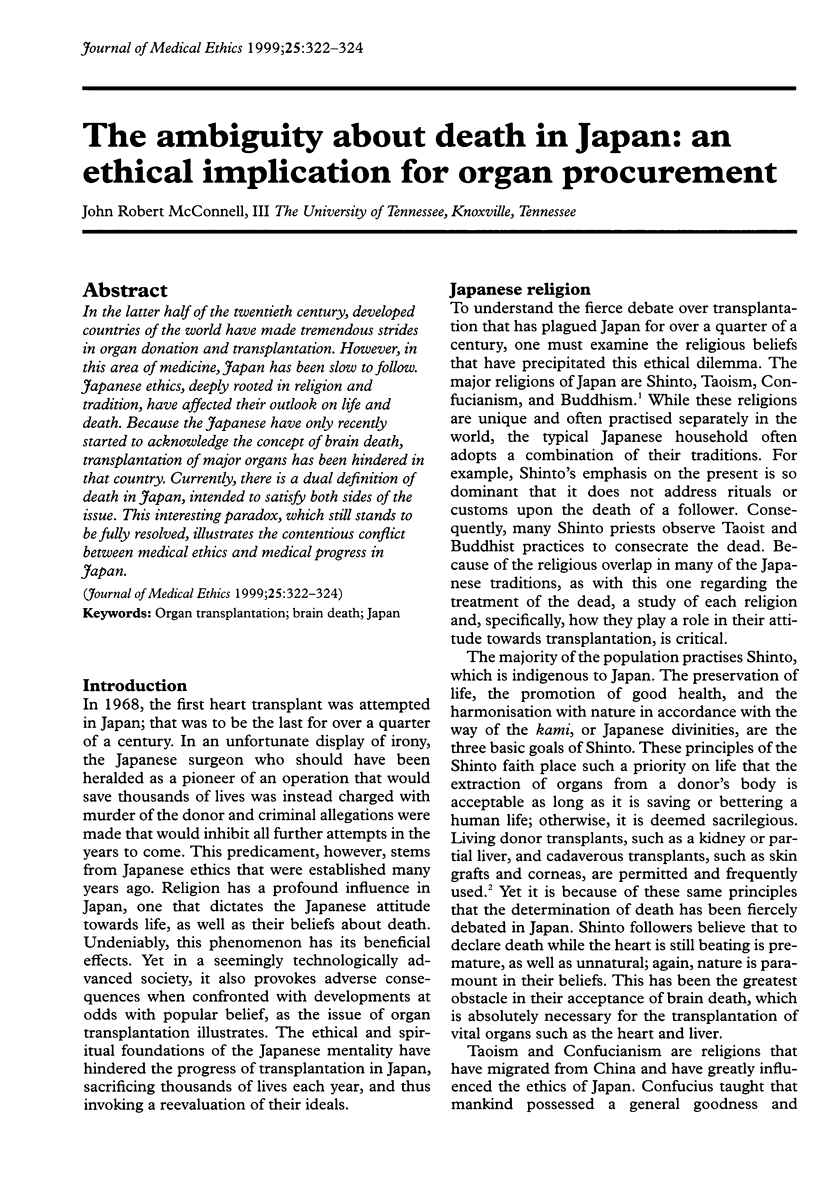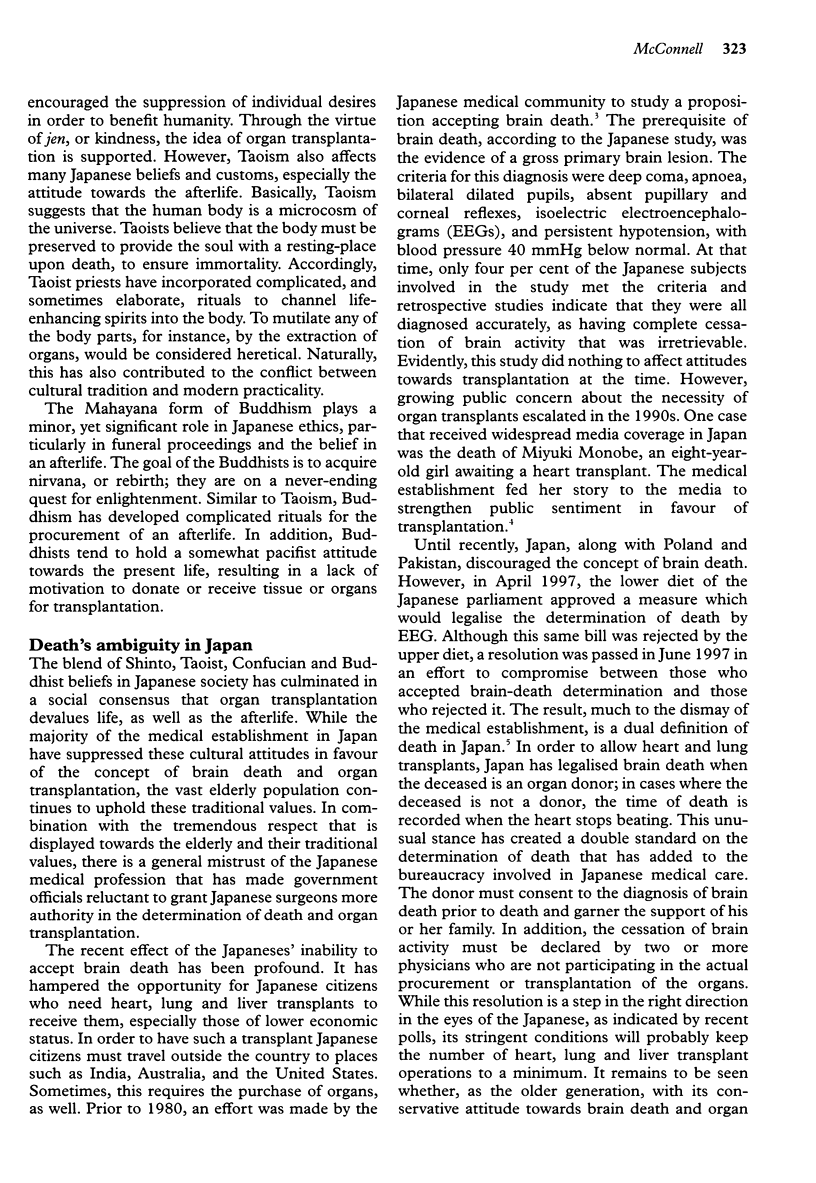Abstract
In the latter half of the twentieth century, developed countries of the world have made tremendous strides in organ donation and transplantation. However, in this area of medicine, Japan has been slow to follow. Japanese ethics, deeply rooted in religion and tradition, have affected their outlook on life and death. Because the Japanese have only recently started to acknowledge the concept of brain death, transplantation of major organs has been hindered in that country. Currently, there is a dual definition of death in Japan, intended to satisfy both sides of the issue. This interesting paradox, which still stands to be fully resolved, illustrates the contentious conflict between medical ethics and medical progress in Japan.
Full text
PDF




